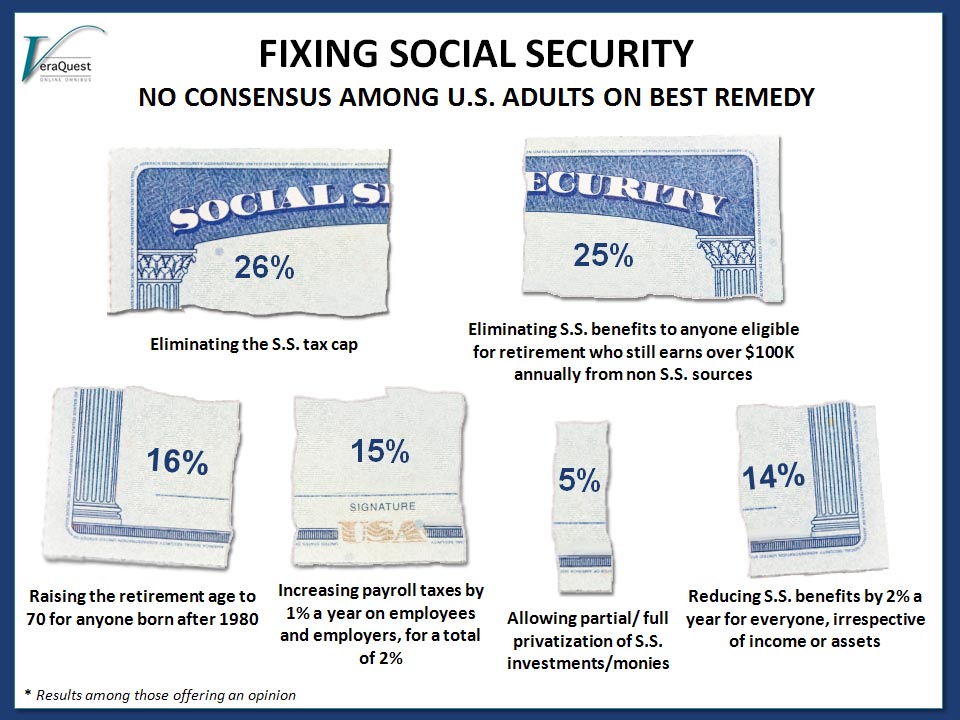With life expectancy in the U.S. increasing, the number of people who will survive well-past
retirement age is also increasing. Many are depending on Social Security as a main source
of retirement income. This change is and will be a strain on our Social Security system and
if we don’t implement some kind of policy change relatively soon it will break.
And therefore, this is exactly what we examined in a recent VeraQuest omnibus study. We
asked Americans which remedies to our Social Security system they might be comfortable
with – and interestingly, among U.S. adults, no single remedy received support from a
majority of the public, not even close in fact. About one-third or less of the public say they
would choose:
- Eliminating the Social Security tax cap – 32%
- Eliminating Social Security benefits to anyone eligible for retirement who still earns
over $100K annually from non social-security sources – 31% - Raising the retirement age to 70 for anyone born after 1980 – 24%
- Increasing payroll taxes by 1% a year on employees and 1% a year on employers,
for a total of 2% – 22% - Allowing partial or full privatization of Social Security investments/monies – 18%
- Reducing Social Security benefits by 2% a year for everyone, irrespective of income
or assets – 7%
Eliminating the tax cap and benefits to wealthier adults are considered the top two
solutions, but neither is supported by more than about one-third of the public.
As above, when asked to pick the remedy they most favor (if they were forced to implement
one), support again varies widely across the board. The top choice (among Americans who
had an opinion on the matter) is:

No surprise – age appears to be a large driver of opinion. Seniors ages 65+ and adults ages
50-64 choose eliminating the tax cap and putting the burden on businesses, while 30-49
year olds are more likely to favor eliminating benefits for the wealthy. The youngest age
group (18-29 year olds) – who are furthest from retirement and most likely to be heavily
impacted – are the most undecided and the most likely to just “decline to answer” the
question entirely.
Luckily, the public isn’t in charge, because based on our data, it seems as if it would be hard
to get any consensus. That’s how America feels. How do you think our leaders will resolve
this issue?
Leave a Reply